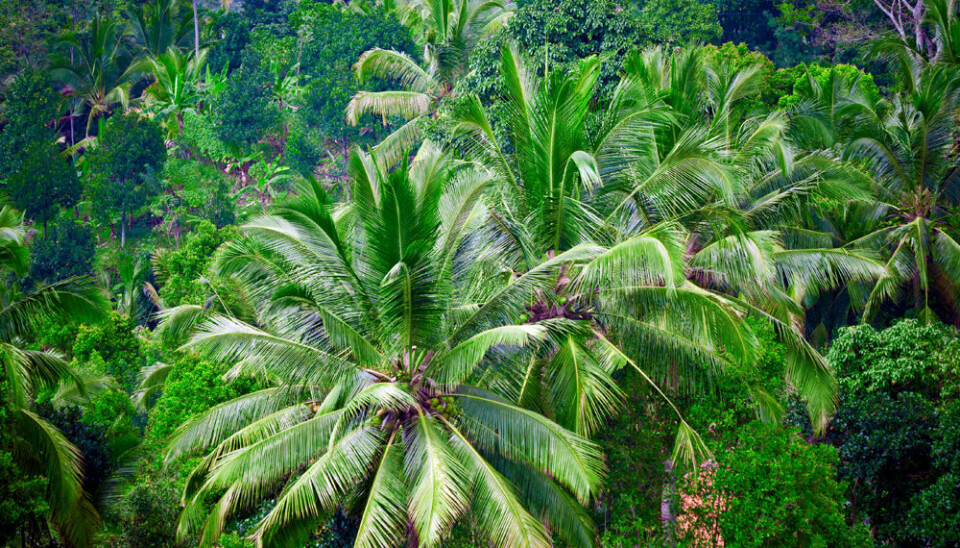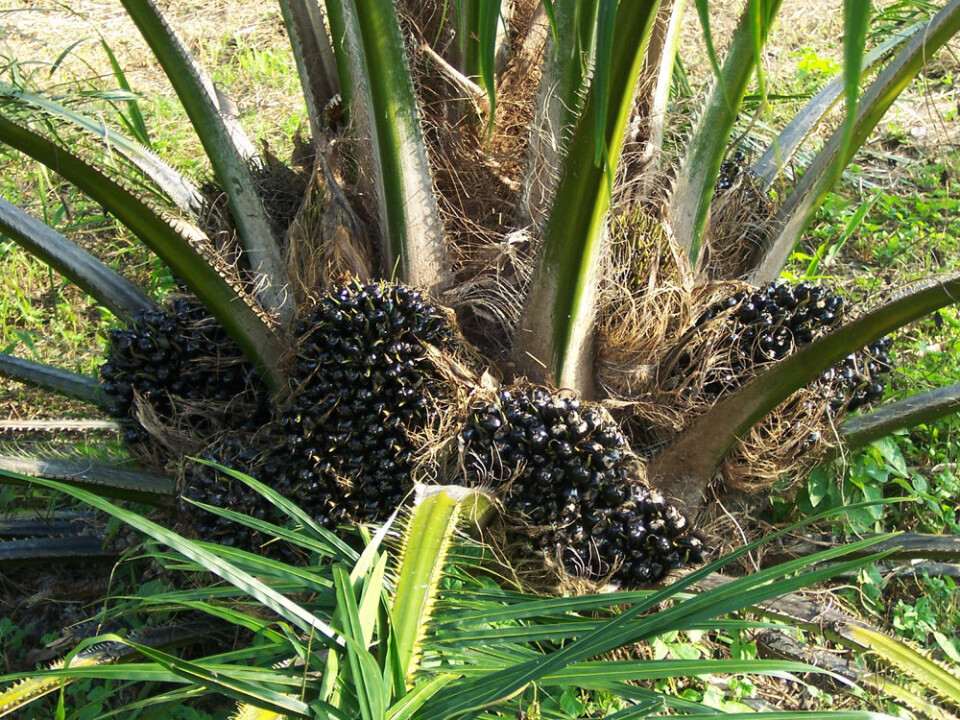An article from University of Oslo

Both rainforest and peasants need protection
Preserving the rainforests might come at a price. The indigeneous people of the Indonesian rainforest could loose their livelihood.
Denne artikkelen er over ti år gammel og kan inneholde utdatert informasjon.
Nico Warouw is afraid that the poor peasants, who exploit the forest informally as a supplementary income, by for example selling some timber, are forgotten.
Warouw is head of the Department of Social Anthropology at the Universitas Gadjah Mada in Jakarta, Indonesia.
He is sure that the Indonesian authorities will listen to major economic interests, including the palm oil industry, but he thinks that the voices of the least affluent have so far not been heard in the debate.
"It is also important to have a dialogue with the indigeneous people of the rainforest. For people living close to nature on the brink of a subsistence level, it is necessary to find alternatives to withdrawing resources from the forest", says Warouw.

He emphasizes that it is the big companies that really damage the forest in Indonesia.
The damage poor farmers cause to the forest is too little to be of any real consequence, in comparison. But to protect the rainforest even the smaller interests will have to find alternative livelihoods.
"Perhaps they can find other sources of income. They might be able fish. What is important is to find economic alternatives that are realistic", says Warouw.
A program for preserving the forest
"It is a very good thing that Norway is committed to revitalising and preserving the rainforest in Indonesia. As an anthropologist I am concerned that the forest agreement that was signed with Indonesia two years ago also affects individuals, not just big companies", says Nico Warouw.
He points to Norway's financial contribution to the United Nations REDD Programme, which is a comprehensive collaboration for reducing emissions from deforestation and forest degradation in developing countries.
Warouw was recently a guest researcher at the Department of Social Anthropology at the University of Oslo. Both researchers and students from the department are conducting research on the rainforests of Indonesia.
Learning from other continents
Nico Warouw fears that vulnerable groups will be adversely affected and become even poorer if they are not involved in the planning of the preservation of the rainforest.
He hopes that the collaboration with the Norwegian anthropologists can help in giving voice to those who are often not heard in Indonesia.
"It is important to provide information in a language people understand and not to go over their heads. Those affected should understand what the government may have to offer them and what opportunities they have to influence the process", says Warouw, who believes the government should avoid communicating with a top-down attitude.
"Many development projects in Indonesia have failed because this attitude is so prevalent", he says.
The Norwegian researchers at the University of Oslo have experience of working in the rainforest on other continents. Their methods can contribute to the work in Indonesia, according to Warouw. They know something about what has succeeded and failed in Africa and Latin America, and bring this experience with them to Indonesia. In return, Norwegian researchers and students work with native anthropologists who speak the language and know the Indonesian culture from within.
"In a few years, I hope that we have more Norwegian and Indonesian anthropologists who specialize in tropical rainforests", says Warouw.
He emphasizes that he is optimistic about the future, even though the destruction of the tropical rain forest in Indonesia has exceeded all bounds in the last 20 years.
"The government has given concessions that should never have been given. But now I think everyone has understood the gravity of the situation. It is critical. It is already late in the day, but it's never too late to say stop," says Warouw.
"Two years ago the President said that he would spend the rest of his time towards working to preserve the rainforest. I think that is promising for the future", says Warouw.
Valuable exchange
"Cooperation between Indonesian and Norwegian anthropologists provides a unique opportunity to report on what actually happens in the field", says Professor Signe Howell
It was Signe Howell, who initiated the collaboration between researchers in Norway and Indonesia. She has conducted several years of research on the depletion of rain forests in Latin America, Africa and Asia and has an in depth knowledge of Indonesia after living and researching there for several years.
"As anthropologists we contribute with a different point of view than other researchers. We are constantly in the field and report what happens 'back stage', while most of the other are in Jakarta, a great distance from both the rainforest and its inhabitants", says Howell.
She believes that the result of anthropologists’ interest in rainforests on all continents is that "those who live in the forest have become as important as the trees."
Anthropologists keep track both of what's happening at the highest levels in capital cities and in the rural areas where those who live in the rainforest are, according to Howell.
She has followed international efforts to reduce deforestation in the Amazon, Central Africa and now in Indonesia, and closely follows Norway's contribution to REDD (Collaborative Programme on Reducing Emissions from Deforestation and Forest Degradation in Developing Countries).
Success depends on cooperation
"What makes the research in Indonesia especially interesting is that we have a close collaboration with Indonesian anthropologists, both at research level and at Master degree level. We have not had this before in other countries", says Howell.
The exchange takes place over three years. Norwegian master's degree students are now traveling for the second time to Indonesia to carry out fieldwork in cooperation with Indonesian graduate students. And Indonesian graduate students have been to Norway to attend classes in social anthropology.
Howell stresses that efforts to combat deforestation depend on the willingness of many participants and that schedules are rarely observed.
"But I think that people in Indonesia have shown an enthusiasm from the very start, which is promising. Grassroots movements that campaign for the forest are also strong. With so many eyes watching what is happening there and strong economic incentives to preserve forests, I believe that Indonesia will succeed", says Signe Howell.






























